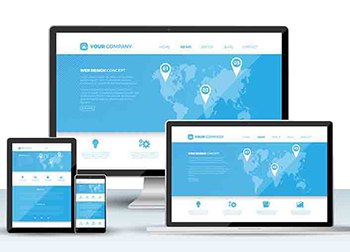Almost every company, organization, and independent professional should have a website by now. Even employees and contract gig workers should have sites to act as online resumes.
 With easy and low-cost website builders now available for non-technical users, there's little reason to not have a website of your own.
With easy and low-cost website builders now available for non-technical users, there's little reason to not have a website of your own.
Building a website, just like opening a retail store, is an investment of time and money. But if you plan well up front, that investment can pay off many times over.
Below are some tips for building your first website, separated into two categories: content-related things and technical tasks.
Figure out the top goals for your site, such as establishing your brand, promoting awareness of your company, providing information about your products or services, selling things online, etc.
See what your competitors are doing: Look at the kinds of words and phrases they use on their websites, see how their sites are laid out, and think about ways you can differentiate your site.
Think about the overall organization of your content. Recall how we used to write outlines in school: make a list of about 5 main things to feature on your site, then break down each one into 3 to 5 sections.
Think about what should go on which page, how the pages should link to each other, and how you want your site navigation to be organized.
With pen and paper, make rough sketches of how you want the pages to look.
Don't forget about mobile users on phones and tablets: think about what content is the most important, so it can appear higher up on your web pages.
Keep it simple! Less is more on the web. Understand that people don't “read” websites - they scan them, so make sure your content is just the bare minimum and the layout is clean, simple, and not cluttered.
Build in search engine optimization (SEO) by making a list of key words and phrases likely to be associated with your site, then make sure to include them in a natural, non-forced way.
Think about how you want people to contact you from the website - via email, a web form, social media, etc. and then build that into your site.
Think about the domain name you'd like to use as the address of your website. It's hard to get ones now that are short, relevant, easy to spell, and available at a reasonable price. (Get in touch for advice on how to find decent and affordable domain names.)
Compare your options to build the site. Content management systems like WordPress have pros and cons, as do site builders like Squarespace and Wix. And you can also use a custom design which is like hiring an architect to design a house to be exactly how you want it to be. (This is the main type of work we do at Radiant Webscapes.)
Pick a good web hosting company. If you're building your site on WordPress, we recommend using a company that specializes in WordPress hosting such as WPEngine. For other platforms, you'll need to balance cost with reliability and scalability. On cheaper plans, you share the server, which poses performance and security risks. Spending a bit more can get you a virtual private server at a reputable company like KnownHost.
As you're building the site, be sure to install Google Analytics and Search Console. These can provide valuable insights on performance, visitors, site usage, and more.
There are content-related and technical tasks that go into building a website, but they're quite rewarding if you put in the time to do them.
Whether it's time or money, a website should not be thought of as a cost, but rather as an investment. And because a well-designed and well-built site allows you compete on a level playing field, and reach people around the world, that investment can pay off many times over.
Get in touch if you're thinking about building a site or want a free, no-obligation evaluation of your current site.